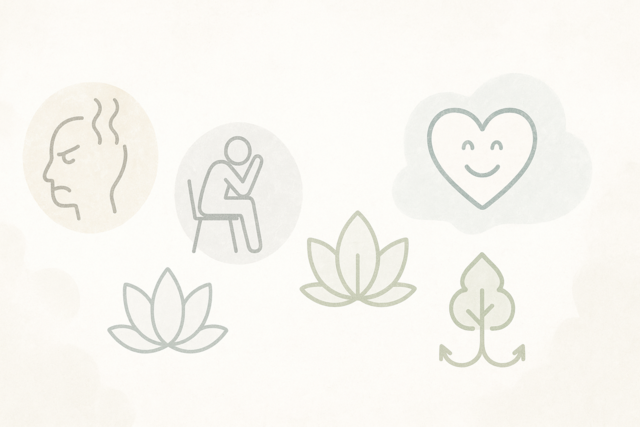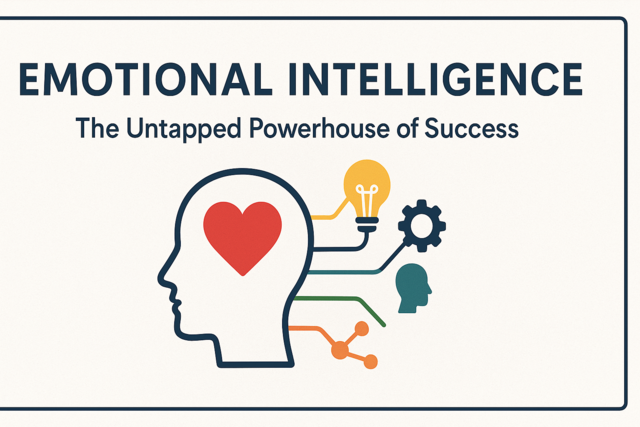Emotional healing is a complex concept that is best described as an emotional, psychological, and spiritual transformation. Although emotions are entities within themselves as part of the human experience, the reality is that our emotions have the power to shape, and sometimes even control, all of the other facets of our lives. When our emotions are unhealthy, such as persistent sadness, anger, or aggression -- or simply when our emotions grow stronger than our thoughts -- our entire lives can be affected. Healing our unhealthy emotions can bring about a whole-body and whole-life transformation.
Chances are excellent that if you want to pursue emotional healing, you have made the connection that your current emotional state is unhealthy or otherwise unsatisfactory for where you are, and what you want in your life. However, because the process of emotional healing can sometimes make things worse before they are better, it is also beneficial to understand the negative impact of our unhealthy emotions on our body in other aspects of our lives.
Happiness, peace, and contentment are all positive feelings; they're also the feelings that have the least physical impact on our bodies. While these feelings may be excellent in helping our psychological state, spiritual life, and actual day-to-day living, the physical effect of these feelings themselves on the body is minimal. However, if you are interested in pursuing emotional healing, we will work on the assumption that happiness and contentment are not the feelings you are trying to heal. Other emotions, such as anger or sadness, that are persistent or even constant, can create havoc on our bodies.
Anger, for example, can have a devastating impact on the body. When we become angry, our bodies start producing hormones such as adrenaline; our bodies may unfortunately cease producing certain hormones, such as acetylcholine, which helps our bodies deal with the increased production of adrenaline and other potentially unhealthy hormones. Without protective hormones like acetylcholine, the nervous system is constantly working and stimulated during bouts of anger. It can also become overexerted, especially in those with chronic anger. As a result, stiffer arteries in a weakened heart may develop; high cholesterol, kidney damage, and liver damage are also potential threats. Naturally, anger also comes with some other threats to your mental health, such as depression or anxiety. It is important to recognize that some scientists have conducted research demonstrating that chronic anger may possibly be more of a risk to your body than smoking or obesity, often as a major factor contributing to an early death. Unfortunately, there's more. When someone is in a constant state of anger, sadness, or other (naturally occurring but) difficult emotions, there are some other effects it may have on your body. Some of the hormones, such as adrenaline, that are generated by a chronic negative feeling can alter your body's chemistry over time. If this occurs, your body can actually become physiologically addicted to these feelings. Obviously, they can become addictive emotionally, as well. In fact, the very concept of undergoing an emotional healing process is subject to the notion that you have, to some degree, become psychologically addicted to unhealthy emotions. Recognizing that you may have become physiologically addicted, as well, can be helpful in learning how to break patterns and better control the choices you make regarding your emotions. Anger can also lead to mental health problems, such as depression, anxiety, and stress.
Sadness is another emotion that, left unchecked, can cause lasting effects. While some of the same hormones that are stimulated by anger may also be generated by sadness, the psychological effects of sadness are much more serious than the physiological. Of course, that is up to a point; sadness can cause extreme physical consequences (they simply usually result from choices made during sadness, as opposed to physiological consequences stemming from the sadness itself). For example, an individual suffering from chronic sadness may become socially withdrawn and begin neglecting aspects of their physical health, such as maintaining a healthy diet and exercise program. In extreme cases, those suffering from pervasive sadness and despair may cause harm to themselves or others.
It is very important when undergoing emotional healing to recognize the patterns and conditions that your body is in as well as your emotions. Tackling pervasive sadness, which usually indicates a level of depression, may require antidepressants that can assist you in maintaining your ideal serotonin levels. And anxiety that may be caused by sadness, anger, or other emotions, may possibly benefit from anti-anxiety medications. Beginning any kind of medication will obviously require a prescription from your doctor -- and possibly a consultation with a psychiatrist or psychologist. This article focuses on healing yourself emotionally without any medication. However, if you find yourself still struggling or think that there may be a physiological component that you may be unable to change or break by yourself, consider talking with your doctor about medication.
Emotional healing is a difficult, intense, and long process. But above all, emotional healing is a call for change in your life. More accurately, the level of your unhealthy emotions is the call for change; the change itself is emotional healing.
For example, let's consider an individual who works in a job where they feel they are under attack. Perhaps their boss doesn't like them, or another co-worker is trying to get rid of them. Maybe they're simply overwhelmed; but others become aggressive when low-priority tasks aren't getting done.This is likely an individual who dreads the workday every morning when they get up, is tense and quick to anger throughout the day, and returns home filled with frustration. The adrenaline and other hormones produced by this person will start taking a tremendous toll, while the emotions of getting through the day are also very damaging psychologically. It will not take long for the individual to remove themselves from the situation if the situation does not change. In fact, most of us have witnessed this occurring to someone in our place of work, sometimes even purposefully by superiors who cause the situation.
Because the constant release of the anger-related hormones causes such tension and physical harm to the body, as well as harm to the mind and spirit, the situation has to change.The individual in this example could have many options: discussing it with their boss, discussing it with a higher supervisor, discussing it with their human resources representative, and so on. But of course, if they feel under attack, they may not believe that any of these are truly options; they thus are likely to leave their job as soon as they believe it is possible for them to do so. We see then that the tension, anger, and anxiety were the unhealthy and pervasive emotions as a result of the situation.Those emotions and their effects on the individual demanded a change of the situation.The call for change was the unhealthy emotions. If the person could have changed their emotions without leaving their job, that change would be sufficient in meeting their needs. However, many people find that changing their emotions is easier to undertake after they have changed the situation.
Most people's natural state fits into one of the following: anger, anxiety, and calm. Emotions such as happiness and sadness tend to be secondary. Anger, anxiety, and calm are the jumping off points, so to speak, before other emotions. For example, imagine lying in bed at night after a typical day, no one to talk to, and no distractions such as the TV or computer. After a few minutes, imagine what you might start thinking about. For one person, it may be thinking about the positive aspects of the day. For another, it might be worrying about an important meeting or event later that week. For a third person, it may be rehashing things that people did or said that caused them pain or frustration during the day. If you want to discover your natural state of emotion, start paying attention to the thoughts that run through your head when there is nothing around to influence them.
For example, a person such as a sister or parent who consistently makes negative comments about you, your spouse, or your children may be influencing your levels of the anger. When you become angry in response, it is true that you are giving them the power to make you angry and it would be ideal if you simply have the ability to deny them that possibility. That is to say, if you could choose to simply not become angry when they make negative comments, that would be a perfect solution. In reality, it is better to understand and respect that everyone has a breaking point and it is better to prevent them from reaching yours than trusting that you can control what happens when they do. So for example, you might limit the amount of time you spend visiting with that person, or you could choose to stay in a hotel rather than at their house when you see them. You could decide that after three comments, you end the conversation. Whatever will work for you and allow you to best control your anger and frustration would be a great option, as opposed to simply counting on your ability to not get angry no matter what they say or do.
Change, which is absolutely necessary for emotional healing, is challenging. Recognizing your limitations will help you decide on the changes you need to make to promote emotional healing and prevent future emotional damage. Most of your change will be within yourself; changes that may affect other individuals will likely have to be shared with those people. And because this is about your emotional healing and not theirs, they may not like the changes you want to make. But you have to remember that the negative and unhealthy emotions you have been experiencing are not a good way to live. Making changes in yourself and in your life is an integral part of healing emotionally and maintaining a healthy emotional future.



























